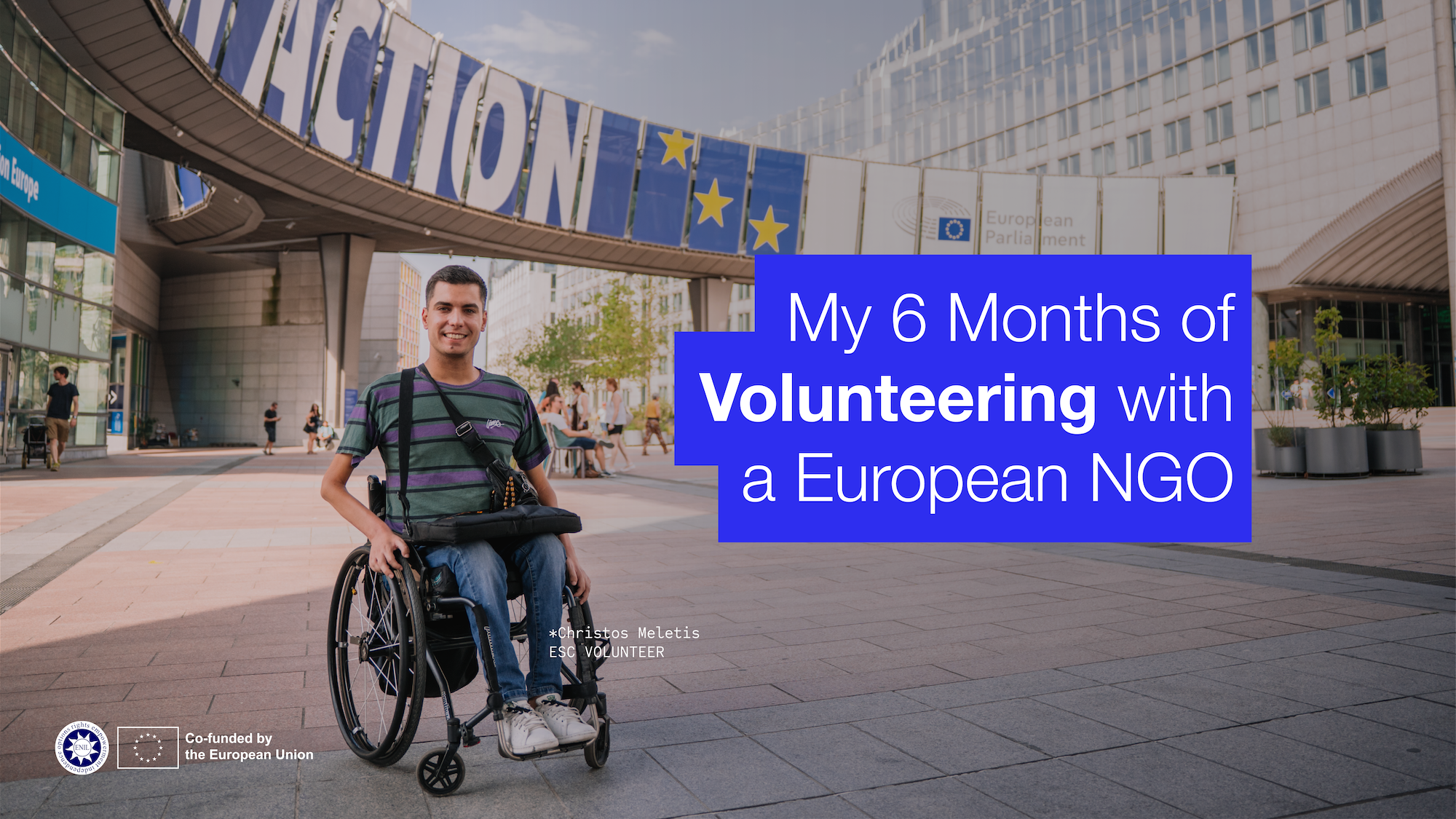ENIL wishes to react to the Council Conclusions on the social inclusion of persons with disabilities through the promotion of Independent Living (13386/25´SOC 632) which was adopted on 17 October 2025 by the Employment, Social Policy, Health and Consumer Affairs EU Council .
The full statement is availble for download as a pdf file here and as a word file here.
The EU Council taking notice
In the opening remarks the EU Council takes notice of many well known but important facts. For example:
- The EU Disability Strategy “supports the implementation of the United Nations Convention on the Rights of Persons with Disabilities”
- All “EU institutions and agencies should take the needs of persons with disabilities into consideration”
- “The right to independent living is enshrined in article 19 of the UNCRPD”
- That according to research from 2020 “more than one million persons with disabilities aged under 65, and more than two million persons with disabilities over 65, lived in institutions in the EU”
- The “provision of … personal assistance, supported decision making and support networks, is essential”
- The Commission Notice Guidance on independent living “provides practical recommendations to Member States on the use of EU funding”
Calling on the Members States and the European Commission
The EU Council proceeds to direct various calls at the Member States, which is positive. For example:
- “Develop or further improve measures for the promotion of independent living of persons with disabilities”
- “Draw on existing knowledge and best practices, taking into consideration the approach reflected in the Commission’s Guidance on Independent Living”
- “Support interventions to enable persons with disabilities to live independently in the community”
- Ensure access to “accessible and non-segregated places of residence, which can take many forms, from individual dwellings to cohabitation arrangements and different types of tenancies”
It is positive that the Member States are asked to work with the European Commission Guidance on Independent Living and inclusion in the community, to make progress on personal assistance and other community-based services, to end segregation. he absence of proposals for specific actions creates doubt about the added value of the Council Conclusions.
Ignoring the Concluding Observations of the CRPD-Committee
In paragraph 21 of the Council Conclusions, the European Commission is called upon to:
“Taking into account, as applicable, the Concluding Observations on the combined second and third periodic reports of the European Union by the United Nations Committee on the Rights of Persons with Disabilities”(CRPD Committee)
The said Concluding Observations directed very concrete demands to the European Union. For example:
- To recognise the General Comments issued by the CRPD Committee as authoritative
- To ratify the Optional Protocol to the UN CRPD
- To establish effective rules, an oversight and accountability mechanism over the spending of EU Funds to stop institutions from receiving further resources
- To halt efforts to ratify the 2000 Hague Convention
- To reform the state aid General Block Exemption Regulation to reduce funding for sheltered employment.
The Council Conclusions fail to mention or respond to any of these demands.
Welcoming and ignoring the input of disabled people’s organisations
In paragraph 22, the EU Council calls on the European Commission: “When preparing initiatives and actions, consult and actively involve relevant stakeholders, especially persons with disabilities through their representative organisations”.
ENIL provided extensive input to the Danish Council Presidency which drafted the Council Conclusions, by sending our input to the EU Disability Strategy, by sending more specific recommendations, by submitting amendments and by explaining our positions in the course of a meeting.
For example, we urged the EU Council to:
- Support the adoption of legally binding guidance at the EU level, recognising the General Comments, Guidelines and Concluding Observations issued by the CRPD Committee as authoritative
- Tackle the disability employment gap which has grown significantly since 2010, by supporting the redirection of funding from sheltered into supported employment, through a reform of the General Block Exemption Regulation
- Call on Member States to introduce effective personal budget schemes, firmly linked to personal assistance
- Call on the Commission to halt efforts to ratify the 2000 Hague Convention
The Council Conclusions fail to take any of those recommendations on board or even mention the related issues.
One item that could be of use is the proposal to “improve the availability of sex-disaggregated data on and conduct an analysis, involving the European Union Agency for Fundamental Rights (FRA), the European Institute for Gender Equality (EIGE) and Eurofound”. At the same time, it is not clear why the task of data collection is delegated to EU agencies, when it is Eurostat that is in charge of statistics.
To conclude
To our disappointment, the Council Conclusions do not introduce any proposals that have not been mentioned elsewhere already. No new facts are being presented, no new and concrete initiatives are being proposed. We would have hoped for a more decisive language. The EU Council has missed the opportunity to align the Council Conclusions with the specific recommendations of CRPD Committee and the input of disabled people’s organisations.
For ENIL, while we welcome Independent Living being on the agenda of the EU Council, the Council Conclusions on social exclusion and Independent Living are a missed opportunity to introduce concrete proposals for legal and policy reform, as well as other concrete actions, based on recommendations of the CRPD Committee. This would have been much more useful both for the Member States and the European Commission, especially considering the long awaited second half of the European Disability Rights Strategy.
We call on the EU Council to adopt a working mode which does not shy away from difficult debates and makes an effort to identify real solutions to improve the lives of disabled people.
For additional input please visit www.enil.eu or contact:
Florian Sanden
ENIL Policy Coordinator, florian.sanden@enil.eu



